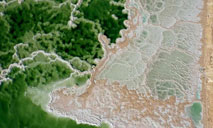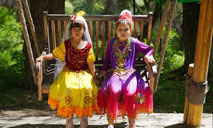Development of China's space exploration "impressive", says Australian scientist
CANBERRA, June 18 (Xinhua) -- The development of China's space exploration in the past years has been "impressive", said an Australian scientist on Friday.
China was "catching up very fast and may be able to leapfrog in some ways," said Prof. Paul Francis, an astrophysicist at The Australian National University when speaking of China's successful launch of the crewed spacecraft Shenzhou-12 on Thursday.
He told Xinhua that on the one hand, the move was important to inspiring the young people. On the other hand, it paved the way for future space missions.
After its launch, Shenzhou-12 manned spaceship successfully docked with the core module Tianhe of China's space station on Thursday.
Francis said that sending the astronauts to the space station would allow China to "start exploring basically the medicine of space, and other technology needed to keep people alive in a small metal box in space to understand better the effects on the health of the astronauts".
He said he believes that this is important to further explorations. "It will be useful for future moon missions or Mars missions or further afield," he said. "You need to understand how they can survive in zero gravity. You need to work on the technology of how you keep them alive, keep the air clean, keep the water and food."
The scientist was also impressed by China's landing of Mars rover earlier this year. "(It) is perhaps the most difficult thing in spaceflight," he said. "For China, to be able to do it successfully first time is very impressive."
At a press conference held in Beijing on Thursday, Chinese Foreign Ministry spokesperson Zhao Lijian said, "China will continue to engage in international cooperation and exchanges at wider scope and deeper level, and make Chinese space station a space lab that can deliver benefits to mankind."
Francis said that space could be a field for more collaborations between foreign countries and China. "The technology to make rockets and keep people alive is the same for everybody," he said.
He personally has had collaborations with Chinese scientists and taught at a university in eastern China. "I have been to China on several occasions and worked with people there," he said. "It's always very good collaboration."
Photos
Related Stories
- China's speed of space exploration amazing, says French researcher
- Chinese vice premier congratulates members of Shenzhou-12 mission
- Commentary: China's Shenzhou-12 mission contributes further to human space exploration
- China's Shenzhou-12 manned spaceship docks with space station module
- China making plans for future space exploration: official
Copyright © 2021 People's Daily Online. All Rights Reserved.










